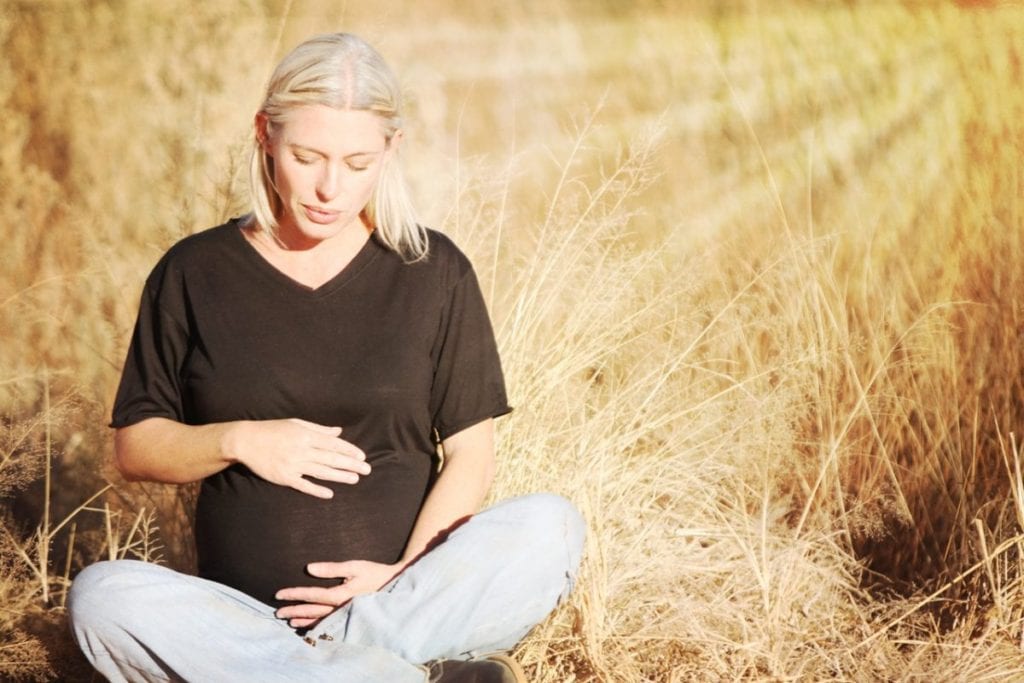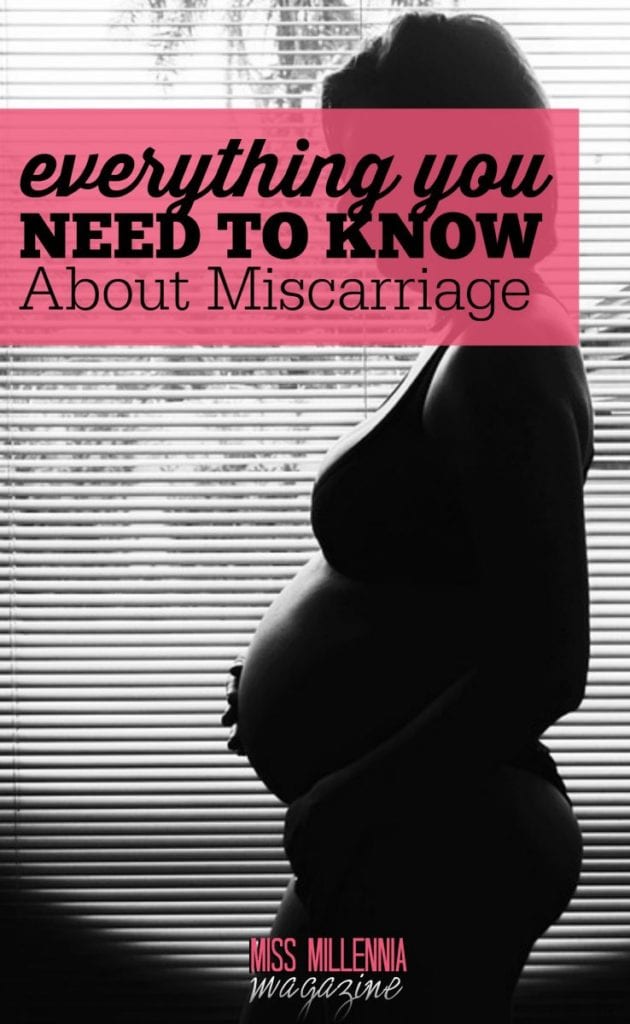Everything You Need to Know About Miscarriage
Miscarriage is something that affects many people, but something that we are often not informed about until we are personally faced with the issue. After miscarrying, many people feel ashamed or even guilty for what happened, which can be detrimental to one’s mental health. In almost all cases, though, there is nothing that could have been done to prevent the miscarriage, as most cases trace back to chemical causes.
Perhaps, if we can all be better informed about miscarriage and ways to deal with it, we can better help ourselves and others if necessary. Whether you’ve recently miscarried, want to be better informed because you’re trying to get pregnant, or you simply want to learn, here’s everything you need to know about miscarriage!
**This article contains affiliate links, and we will be compensated for any purchase made after clicking on them. Thank you for supporting Miss Millennia Magazine!**
What is a miscarriage?
A miscarriage is a pregnancy that naturally ends within the first twenty weeks of gestation.
Want to learn more about the science behind miscarriages? Read It Starts with the Egg by Rebecca Fett!
Are there different kinds of miscarriage?
Though a miscarriage might seem pretty straightforward, there are actually many nuances and many different kinds of miscarriages. These are the most common types:
Chemical Pregnancy
This is the term for a very early miscarriage—so early that often the person did not even know they had conceived in the first place. It occurs shortly after implantation and causes the person to bleed around the normal time of their periperod.
Ectopic Pregnancy
In an ectopic pregnancy, the fertilized egg has implanted somewhere else besides the uterus. Most commonly, the egg will implant in the fallopian tubes. The egg can’t gestate properly if it is not in the uterus, so then the pregnancy is lost.
Blighted Ovum
When the fetus does not develop properly, but rather the gestational sac continues to grow, then this is called a blighted ovum.
First-Trimester Miscarriage
This is an umbrella term for all types of miscarriages that take place within the first twelve weeks of pregnancy.
Molar Pregnancy
In this case, the fetus will not develop normally because pregnancy tissue overgrows. It’s caused by a chromosomal abnormality that develops at the moment of fertilization.
Incompetent Cervix
This is a medical condition in which the cervix dilates early, resulting in either loss of pregnancy or a premature birth.
Second-Trimester Miscarriage
This is an umbrella term for all types of miscarriages that take place within the second twelve weeks of pregnancy.
Stillbirth
A stillbirth is the death of a baby in the womb before it is birthed. It occurs late in the pregnancy.
[clickToTweet tweet=”Treat your body as well as possible if you are expecting. #health” quote=”With so many unknown factors during the early stages of pregnancy, it’s best to treat your body as well as possible if you are expecting.”]
How common are miscarriages?
According to the American College of Obstetricians and Gynecologists, between 10-25% of all clinically recognized pregnancies end in miscarriage. Chemical pregnancies account for 50-75% of all miscarriages.
Why do miscarriages happen?
There are several different causes of miscarriages, and sometimes a cause can’t be clearly identified. Most first-trimester miscarriages are due to chromosomal abnormalities that occur when the egg is fertilized. Other hormonal or chemical anomalies also cause pregnancy loss. Not all causes are unavoidable or internal, though.
Lifestyle choices such as drug and/or alcohol abuse, smoking, and malnutrition can lead to a miscarriage. A high caffeine intake during pregnancy can sometimes lead to loss of pregnancy as well. With so many unknown factors during the early stages of pregnancy, it’s best to treat your body as well as possible if you are expecting.
Want to learn more about preventing miscarriages? Read Prevent Birth Defects & Miscarriages by James Lee Anderson!
What is the difference between a miscarriage and an abortion?
Although in the medical and scientific world, a miscarriage is referred to as a spontaneous abortion, there is a difference between abortion and miscarriage. As mentioned earlier, a miscarriage is the loss of a pregnancy. Most often, an expecting parent does not want a miscarriage to occur, and it occurs naturally.
An abortion is a deliberate termination of pregnancy, and it is most commonly the choice of the person who is pregnant to undergo the procedure. Both abortions and miscarriages commonly take place during the early stages of pregnancy, before the fetus is developed.
What are the most common signs of miscarriage?
Heavy bleeding and abdominal pain are the two most telltale signs that a miscarriage has happened. As you probably know, when someone becomes pregnant, their period will stop until the baby is born. So, if it seems that you are having your period during pregnancy, that is not a good thing.
Sometimes, spotting will occur during the early stages of pregnancy without necessarily signifying a miscarriage. When bleeding is accompanied by abdominal pain, then it is more likely that the spotting is not part of the normal pregnancy cycle. What kind of pain you may experiences varies from person to person: it may be brief and sharp, or last a long time and be more dull and crampy.
If you are concerned about any bleeding or pain you are experiencing, be sure to make an appointment with your doctor.
[clickToTweet tweet=”Heavy bleeding and abdominal pain are the two most telltale signs that a miscarriage has happened.” quote=”Heavy bleeding and abdominal pain are the two most telltale signs that a miscarriage has happened.”]
What are the most common side effects after a miscarriage?
After a miscarriage, there are several different mental and physical changes that someone might go through. Having sex again can be difficult for awhile since it often reminds the mother of the event that led to being pregnant in the first place. Slipping into depression is also not uncommon.
Physically, it can take over a month to recover from miscarrying. Vaginal bleeding will probably continue, as will the abdominal pain. The breasts might also become sore, especially if the person was farther along in the pregnancy.
How does a miscarriage affect your period?
People’s periods usually return to their usual cycle within three to six weeks. Once the bleeding caused by the miscarriage has stopped, you can expect that your period should continue as normal.
How does a miscarriage affect future pregnancies?
This really depends on the specific cause of your miscarriage. If you’re concerned about becoming pregnant again in the future, talk to your doctor and see if you’re able to conceive or if there is any chance of risk from trying to become pregnant again.
Want to learn more about pregnancy after a miscarriage? Read Trying Again by Ann Douglass and John R. Sussman!
What are some coping mechanisms to heal after miscarrying?
There’s no doubt that a miscarriage is a very sad event. If it took place after the pregnancy was discovered, there is certainly a grieving process after. Of course, everyone will grieve in their own way, but there are some commonly-recognized mechanisms that will help.
If you recently miscarried, you first need to acknowledge the loss of the fetus. Just because the baby was not born does not mean that you didn’t start to feel like a parent already. Talk about the loss with those close to you. Sometimes, a miscarriage will put a strain on the expecting couple. Don’t let this drive a wedge between you and your partner if you are currently in a relationship. Lean on each other for emotional support.
Another incredibly important thing you should do is talk to your doctor about what happened. They might be able to tell you if this was a random occurrence or if you might have to worry about it happening again with a future pregnancy. If it seems that you will be able to have a baby some day, don’t be afraid to get pregnant again. Giving birth in the future will not erase your loss, but the love that you will have for your child can help fill the gap.
Want to learn more about coping after a miscarriage? Read Empty Arms by Pam Vredevelt!
Hopefully, this article will give you a fairly comprehensive jumping off point to learning everything there is to know about miscarriage. If you want to learn more, read the books and other resources we’ve gathered for you in this article! There is no such thing as being too informed. And if your thirst for knowledge still isn’t satisfied after that, talk to your doctor.
If you or someone you love has recently miscarried, I want to extend my condolences and send you well wishes for the future. Know that you can and will get through this tough time!
Resources: Amazon Books, American Pregnancy, Baby Center, Scary Mommy, Very Well












